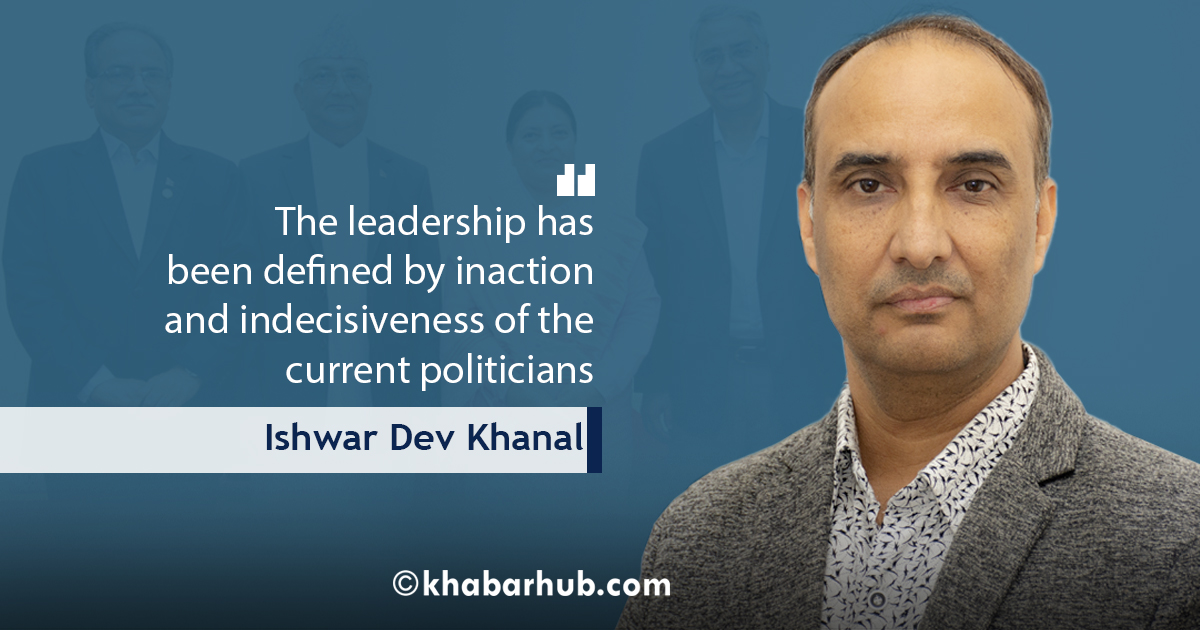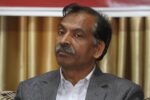If there is one thing that Nepali political leadership has succeeded in doing over the years in the last decade, it is the overplaying of the blame game — liberally elucidating their own failures as the direct result of some ideology or administrative structure such as the iniquities of the Panchayat legacy, bureaucracy, opposition party, external interference, cultural imperialism, or sometimes even Western imperialistic meddling. Reiteration of this rhetoric and clichés are now the norm and a new normal for Nepalese politicians (policymakers) to hide their own weaknesses and inability to learn new ways of thinking for guiding the country to march ahead on the path of progress and development.
The political leadership at the top are a bunch of incapable ‘elites’ bereft of any long term vision and full of a disproportionally inflated ego.
The fact that the role of ‘external factors’ leading to the current afflictions of this Himalayan nation today cannot be ignored altogether. At the same time, it is unpretentiously pathetic to observe that the political leaders tend to overlook the internal factors within the polity and economy of the country which is directly responsible for the mess we are in. Lack of political consensus on several issues of national importance, absence of political will and determined leadership to press ahead with cabinet decisions taken in the interest of economic development and strengthening roots of democracy across the length and breadth of the country and incompetence of leader’s personality have hindered the country’s development efforts even after the promulgation of the new constitution in 2015.
The political leadership at the top are a bunch of incapable ‘elites’ bereft of any long term vision and full of a disproportionally inflated ego. They compete with each other by hurling foolhardy statements every now and then plunging the democratic debate of the country at new low, even dare to come face to face with the list of their own failures. Nepalese politicians have an incorrigible tendency to put forth the defense as an explanation to justify their weaknesses instead of dropping it altogether.
The sad reality is that except a few political leaders such as BP Koirala, Ganeshman Singh, Madan Bhandari, Krishna Prasad Bhattarai, Subarna Shumsher and Pushpa Lal Shrestha the current horde of politicians have utterly failed to even prove that they indeed have leadership quality to lead the nation other than an ability to make money and earn position for personal gain through business of politics. The current lot of politicians in order to imbibe the lessons to transform themselves into an exemplary leader must treat politics as means to serve the people rather than join politics to serve their own personal ambition of achieving power, position, and money to subordinate the people.
It wouldn’t be wrong to say that the country’s political leadership at present has been defined by inaction and indecisiveness of the current politicians.
Nepal’s economic development and the consequent prosperity of the country is the natural outcome of clean, transparent and responsible political governance. If Nepal is poor then the blame goes directly on politicians, not on any other things. Dishonest politicians divert the blames on some ideology or farce notion as reasons for Nepal being the least developed country. They mislead the people through new jargons like external powers are doing experiment with Nepalese citizens and forget the fact that they themselves are looting the people’s money by getting the loot divided among themselves by making laws with narrow vision. Helpless citizens are just misled by these new lot of politicians. No doubt, Nepal has been blessed with some exceptional political leaders and youth who sacrificed their time, wealth and everything for this country but what to say about these career politicians who are looking for a career by joining politics with the sole aim of improving their own status.
It wouldn’t be wrong to say that the country’s political leadership at present has been defined by inaction and indecisiveness of the current politicians. It is again not wrong to say that the current politicians are more ‘self-centric’ and their ‘individualistic attitude’ show everywhere in everything they do and speak. Aren’t Nepali people accustomed to hearing out utterances of ministers promising great feats of success in agriculture, industry, health, and education and assuring cherished goals of democracy liberty, equality and justice at all level in every fields such as freedom of doing business, freedom of the press, and freedom to access the governance? The list goes on….. Well, just put your hand on your heart and seek the answer.
But, yes many of them are direct outcomes of the undisciplined approach of political leaders who never cared to provide an intelligent long-lasting political solution to our country.
There is one famous attribution theory. It says that there exists a tendency amongst humans to take credit of success saying “it is all because of me” and blame others for failures. This is what we notice in case of failure of the political leadership of Nepal to transform the fate of the country. These politicians blame bureaucracy and hold some other remotely connected factors such as ‘foreign hands’ to hide their inability to bring positive changes in the country and hence in the life of the people. This, as psychologists observe, is a clear case of ascriptions or let us say inferences for drawing some kind of understandable explanations for own behavior.
This is also referred to as ‘Blame Game Theory‘ — It is not me, it is someone else approach of seeing the things and refusing to own the negative result. It further means not putting in sufficient amount of efforts to overcome the major difficulties and failures that one confronts. Again, it does not mean at all that all cases of political mess and major failures in the political journey of Nepal are all due to the selfish interests of politicians. But, yes many of them are direct outcomes of the undisciplined approach of political leaders who never cared to provide an intelligent long-lasting political solution to our country.
However, one cannot deny the fact that there have been instances of external political pressure due to misgoverning the country internally by politicians who played in the hands of others. A senior minister confided with the present writer that the external pressure is always there because we are all interconnected and power-play between the great powers at global level brings us in the center stage of international politics making it very difficult to resist the enormous political pressure put on us with a serious implication in our own administration sometimes.
The continued political intervention thereby weakening of bureaucratic institutions, including other semi-government organizations have weakened the country’s stability.
If the minister’s allegations are to be believed, then some questions demand answers. For instance, to what extent is the external elements or the international community willing to see a stable Nepal? If it is true, from whose perspectives are we talking of stability? Is this what Nepali people really want? What type of system do they really want to see in Nepal? Or what is that the external elements want from Nepal? Answers to these questions need to be explored or else failure to know and understand these concerns will tend to contribute to a critical situation.
People here have seen ‘heroes’ turning into rulers. Plunder of natural resources, mainly in the Chure Bhawar is the classic case of politics of exclusion and deprivation tilting the balance of power which goes unabated. However, the leadership has been engaged in interpreting their failure and weaknesses with internal and external factors very much indicating that Nepal’s infant federal republic democracy is under constant threat. Also problematic as it appears in the country is the functioning of the existing state institutions, including bureaucracy as repeatedly pointed out by the political leadership. The continued political intervention thereby weakening of bureaucratic institutions, including other semi-government organizations have weakened the country’s stability.
Aspects related to ‘pull and push factors’ are continuously shaping the internal dynamics of Nepali politics. However, Nepalese people have never been so static in their choice of political leaders despite having the baggage of history and retrogressive penchants while voting. The majority of people have made great leaps in terms of political participation and awareness of local, regional and national issues. People have begun to understand the broader implications of bad governance and bad politics. They also understand the consequences of autocratic governance.
All these hostile political environments have consequently contributed to the exodus of youth and productive workforce out of the country — commonly termed as ‘brain-drain’.
Now people have been looking for long term solutions to achieve political stability. And that is not possible without giving a chance to young leaders to be in the political helm of affairs. Such a base of young leadership will begin a process to set in a political change by bringing in an attitudinal change in the entire spectrum of politics that way it exists now. It entails a complete overhaul of the current state of affairs in very near time to come if not overnight. It is urgently needed.









Comment